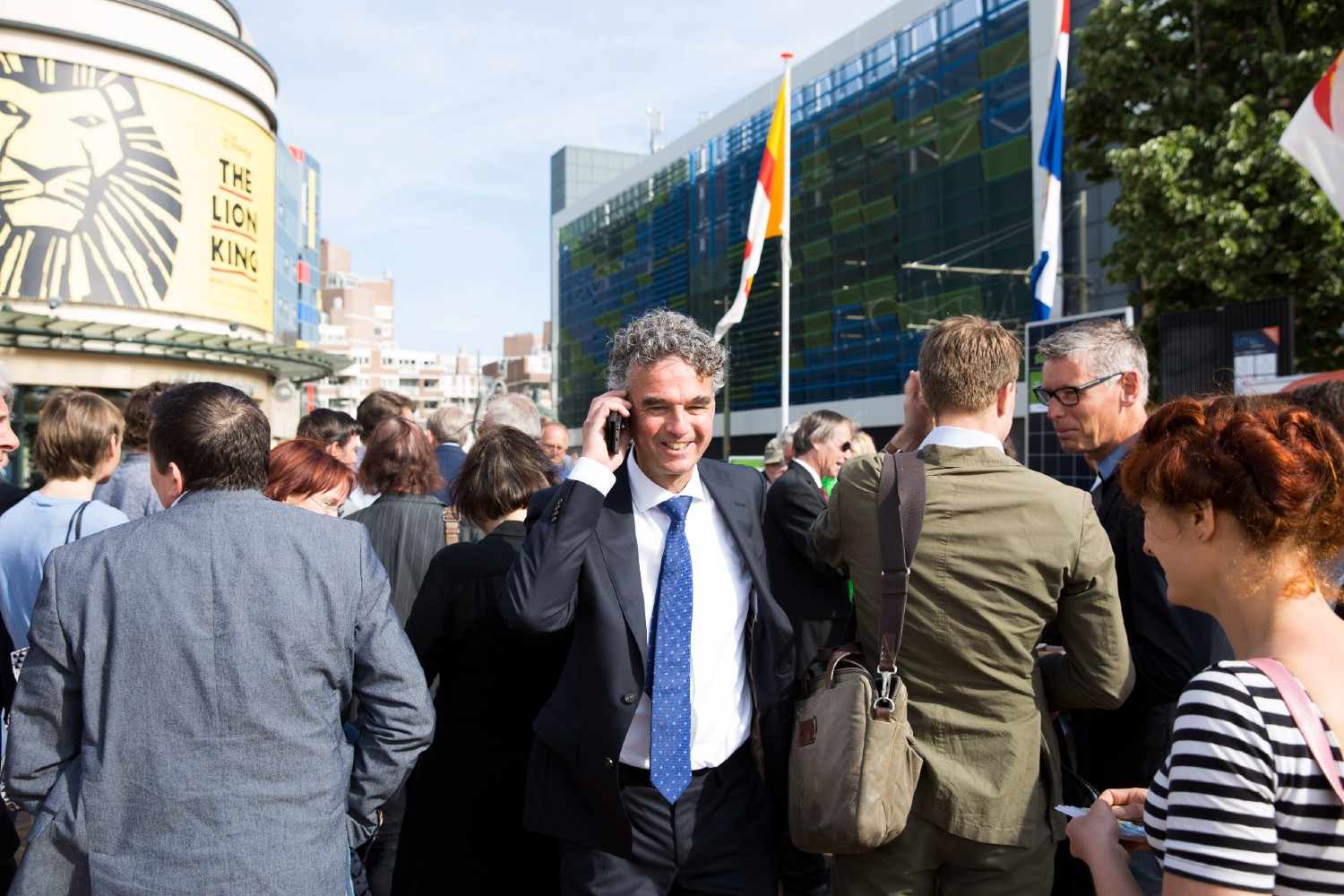Through his Follow-This foundation, TU Delft alumnus Mark van Baal is trying to force oil companies to take a greener course. What does he expect from the Climate Summit?
Mark van Baal: "The only ones who can convince Shell to change its course are the shareholders.” (Photo: Anke Teunissen)
Thanks to the participants in his Follow-This foundation, Mark van Baal has been an activist shareholder at Shell since 2016, and later also at BP and Total. Using climate resolutions as his main weapon, Van Baal knows how to rally more and more shareholders behind him. And that is his strategy. “Shell does not listen to journalists, action groups or governments. The only ones who can convince Shell to change its course are the shareholders.”
The Climate Summit in Glasgow opened on Sunday. How do you view that as an activist shareholder?
“Very radical decisions have to be taken by governments in Glasgow. The Guardian newspaper wrote that now, for the first time, the oil industry no longer has an official role at the Climate Summit. Until recently, they were allowed to give presentations and participate in discussions. Apparently, the organisers said that as long as they are not in line with Paris, they have no official role to play here. It’s a good development that the oil industry is losing its traditional power.”
ABP, the large pension fund, made the news last week by announcing that they were going to divest their interests in coal, oil and gas. Smaller pension funds are now asking themselves if they should stay and campaign from within or withdraw from the fossil sector?
“We believe that you should stay and move things from the inside. But ABP has never shown any climate activism. Shell expressed its indignation in the Telegraaf newspaper, and rightly so. It’s like one of your two best friends suddenly ending their friendship without warning.”
Has ABP not supported your resolutions in recent years?
“At first they always voted against us, and eventually they started abstaining. But last May they voted in favour of Shell’s policy by abstaining on our resolution. That is very strange and we can only guess as to why. The only thing I can think of is that they see legal risks. It’s clear that courts are going to hold not only oil companies but also their financiers responsible for the effects of climate change and that liability cases might ensue. But that’s just my guess.”
We write for students and staff at TU Delft. What influence can they exert?
“They can all become green shareholders of Shell, BP or other oil companies at Follow-This for a few euros. Then they are green shareholders and can send an email to the CEO of Shell. That would be quite nice. ‘Hello Ben, I am your newest shareholder and you have the power to change the world. You have my support. I am studying at TU Delft, and if you want me to come and work for you, you will first have to change direction.’ Follow-This will then attend the shareholders’ meeting in mid-May on your behalf. In addition, everyone must do what they can. Install solar panels, drive electric, stop eating meat and flying. There are many things you can do or not do as an individual. But the main impact comes from the decisions of Ben van Beurden (Shell), Bernard Looney (BP) and Patrick Pouyanné (Total).”
One sees awareness of sustainability breaking through widely, especially among young people. Why are you focusing all your efforts on the fossil sector?
“There is a lot to be done but crucially, the oil industry needs to change. The fossil industry is responsible for more than half the emissions, so if it does not change, there is no chance of achieving the climate targets. The engineers of the future will have to work very hard to find solutions. They have a fantastic challenge ahead of them. If a company like Shell changes course, they will need a lot of people from TU Delft who are willing to take on those challenges using the latest technology and fresh ideas. Technically anything is possible, you just need a lot of smart engineers and they are here.”
About changing course – Shell has sold oil fields in Texas for USD 8 billion. Is there a chance they will invest that in offshore wind and green hydrogen?
“We would love to see that, but Shell has already said that they are going to give the money back to the shareholders. That, of course, is a lack of ideas. It would be nice if they would say we are going to use that USD 8 billion to fill the North Sea with wind turbines and electrolysis installations.”
But it hasn’t come to that yet?
“No, and that is really due to the people at the top of the company. After 30-40 years of pumping oil and gas, they can no longer imagine a different world. It’s not the fault of Shell’s younger people – they know that things can be done differently.”
Do you have a question or comment about this article?
j.w.wassink@tudelft.nl


Comments are closed.